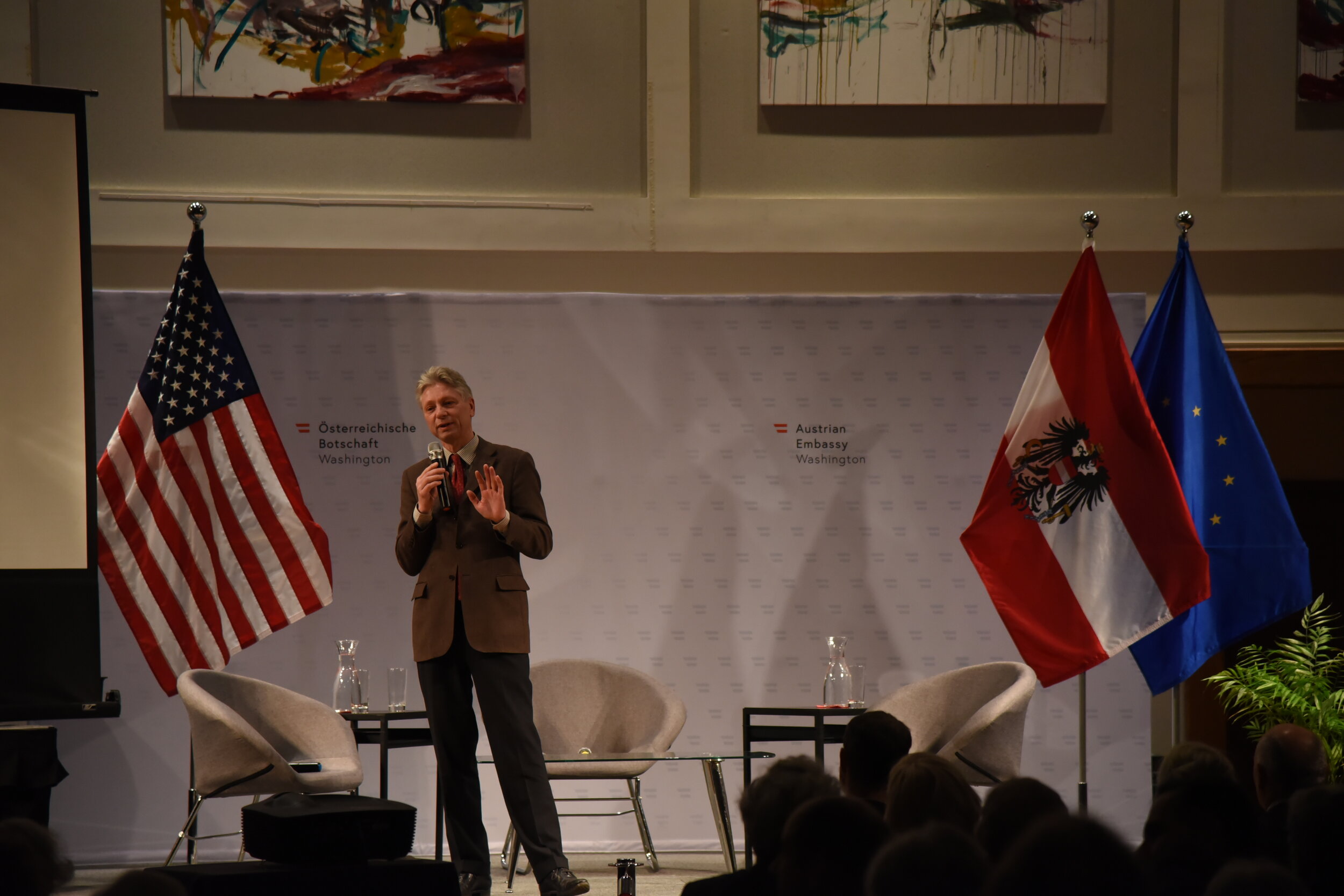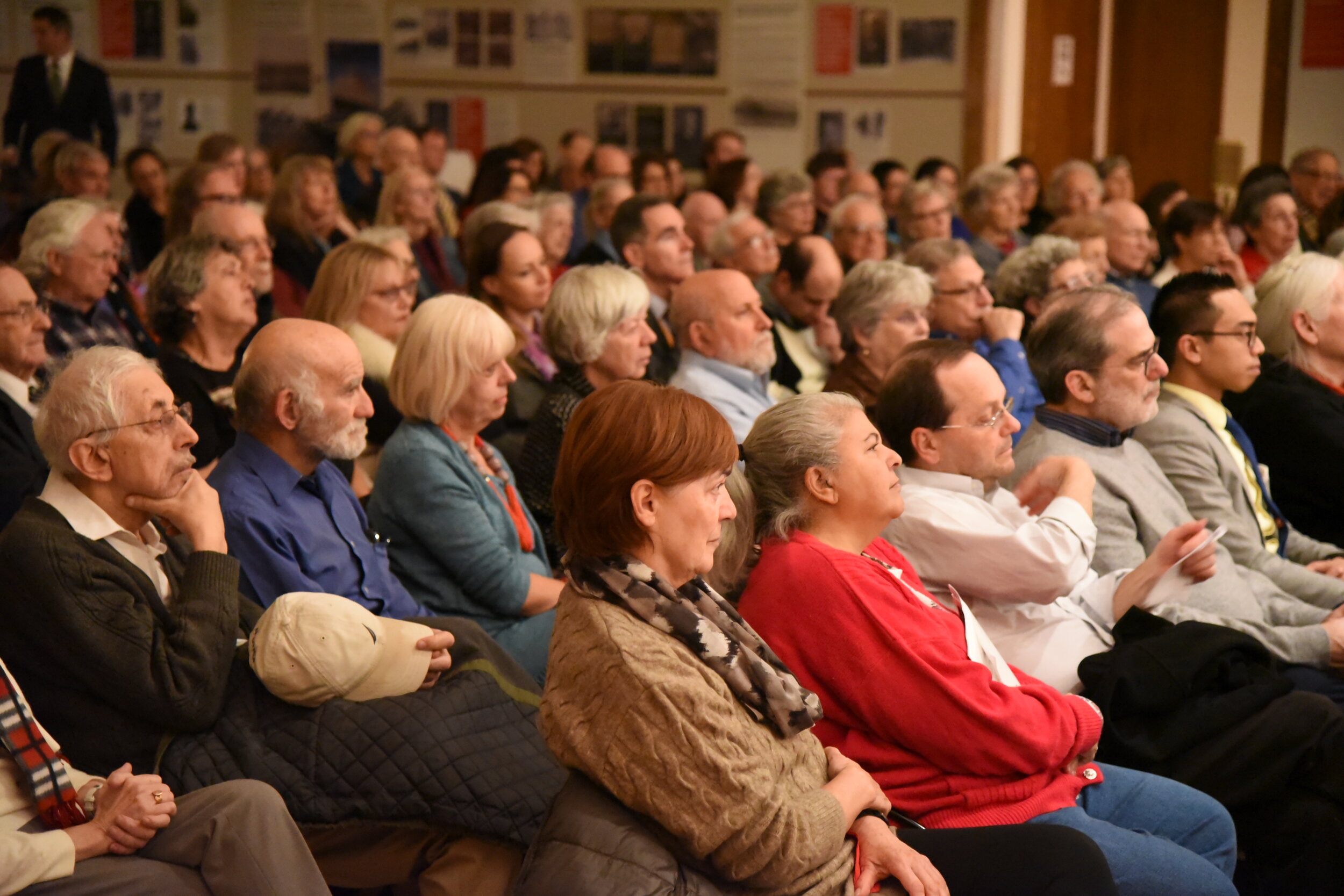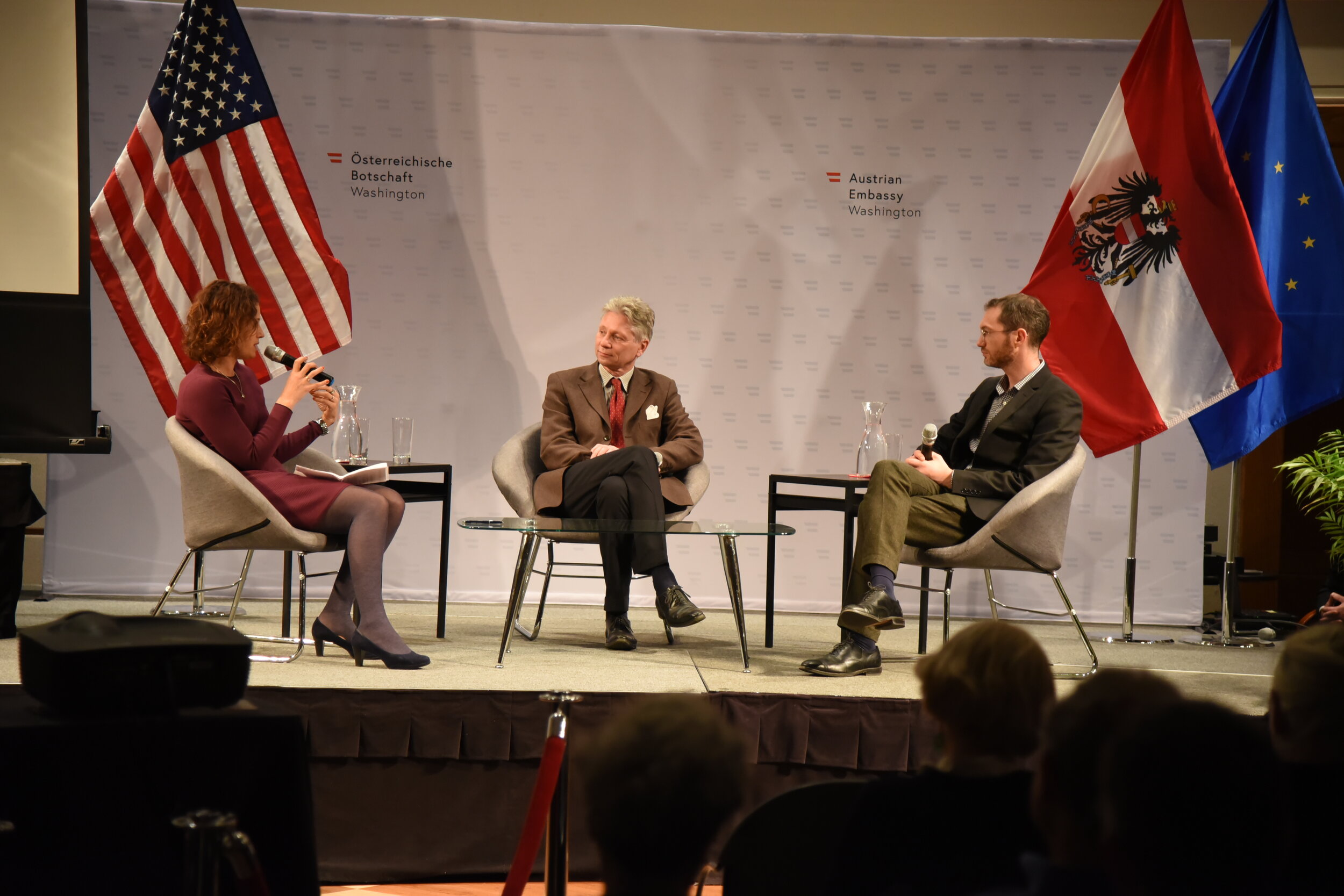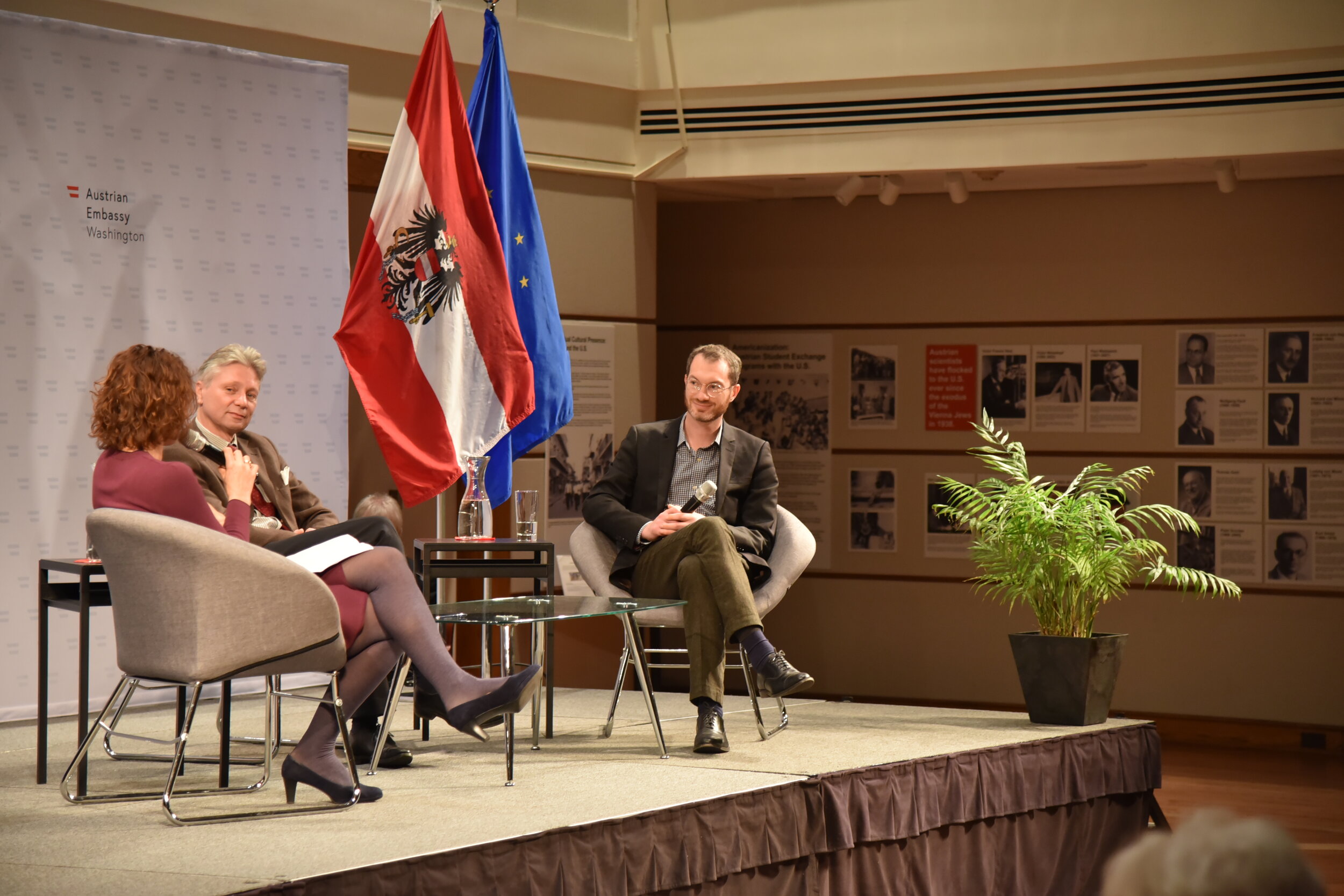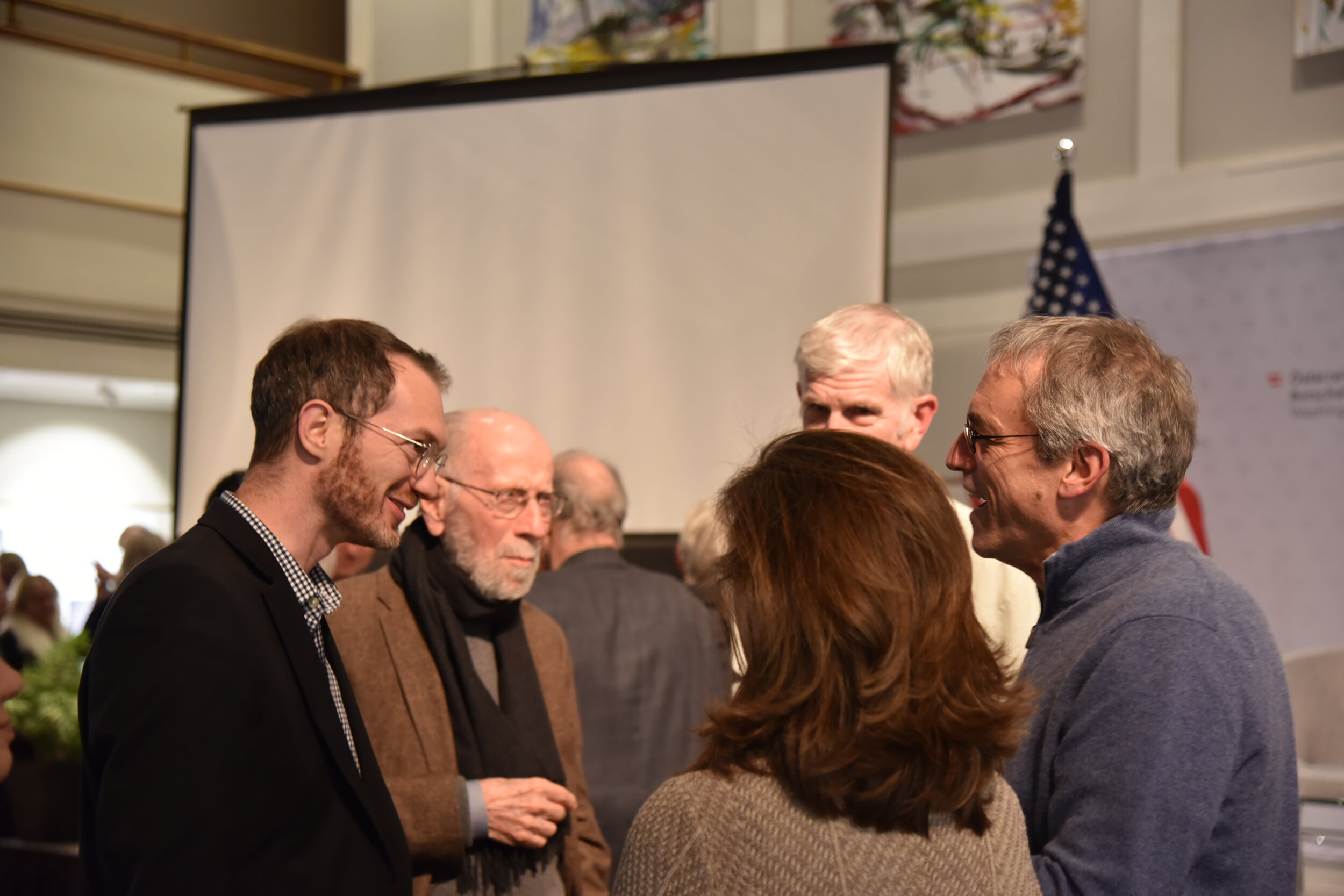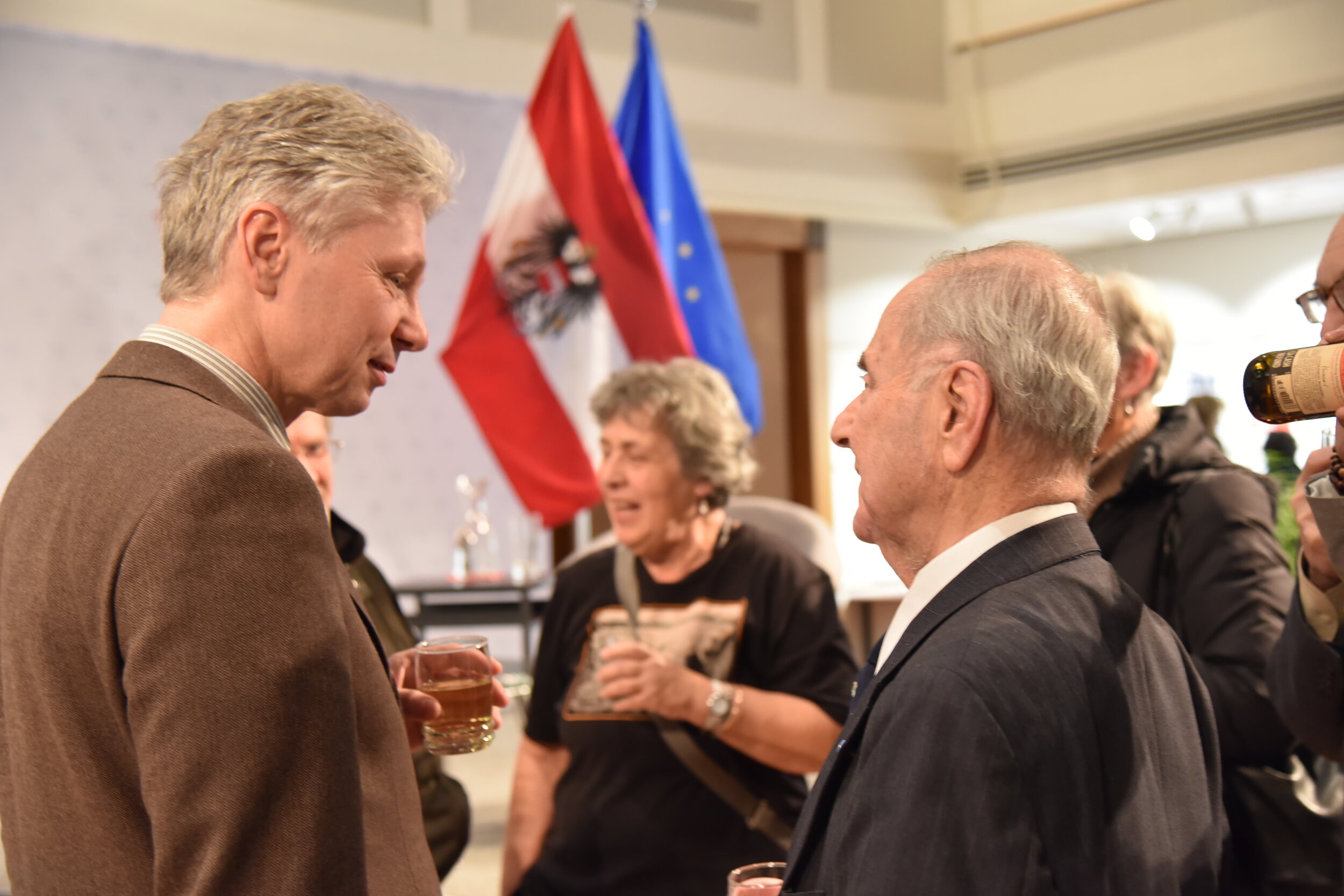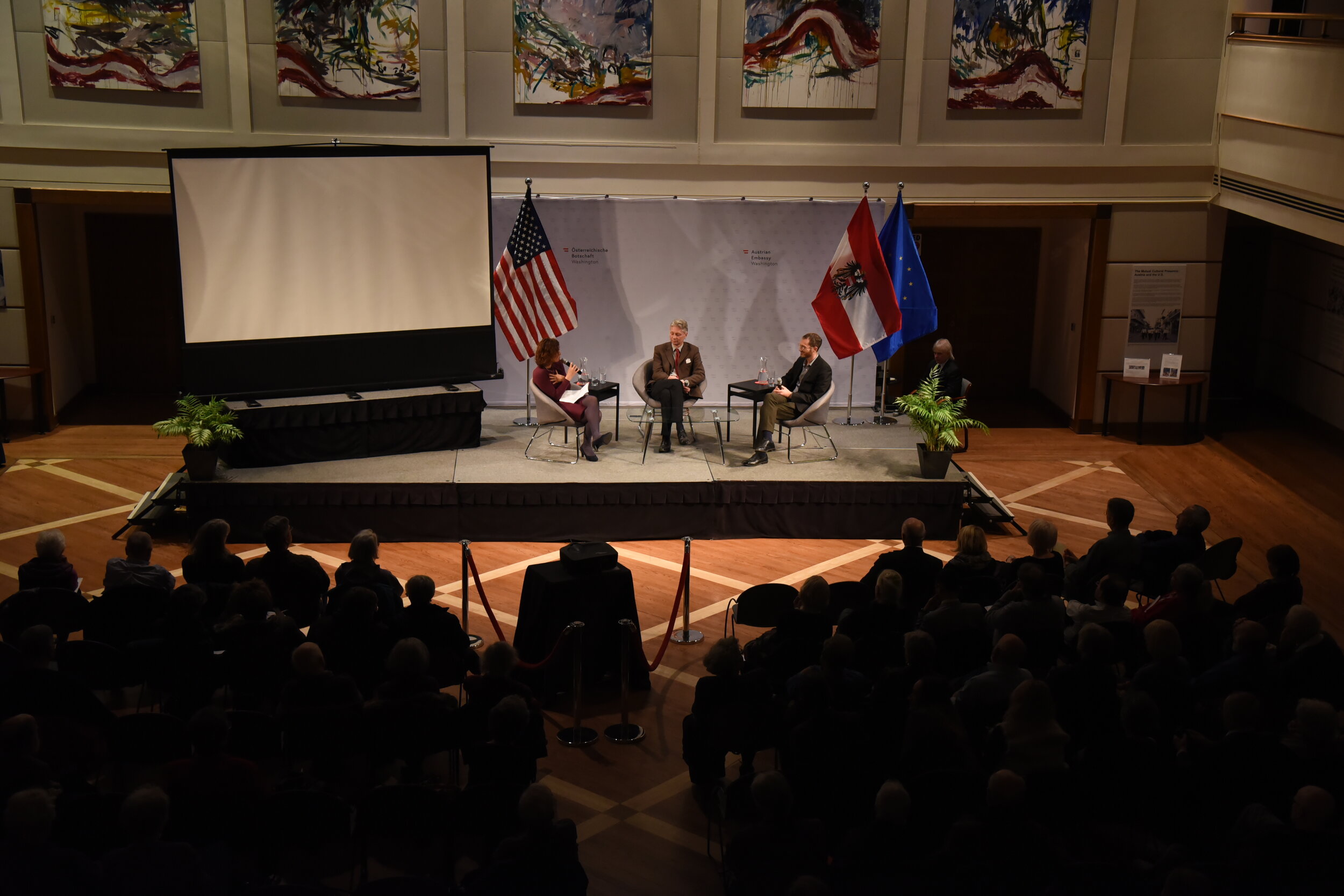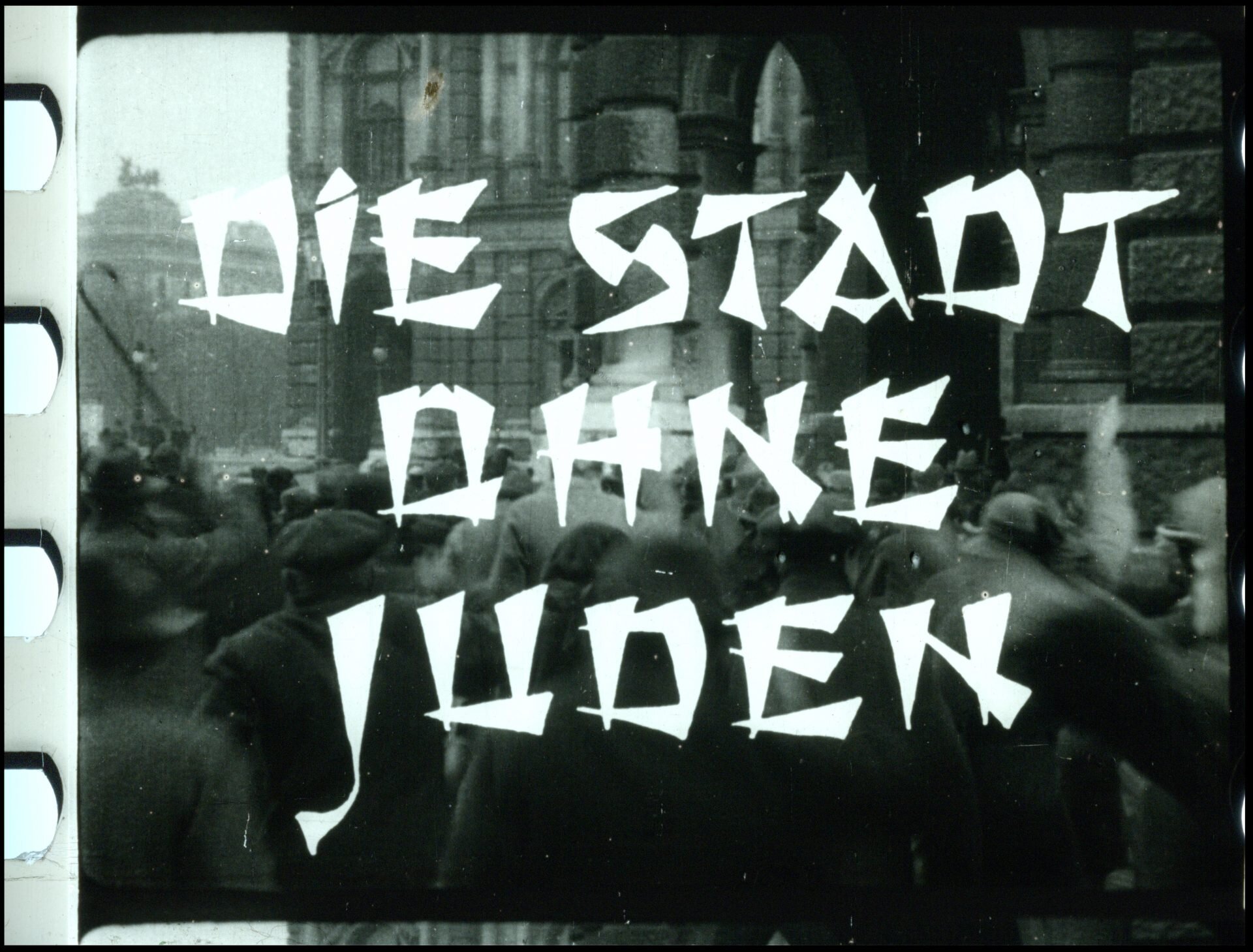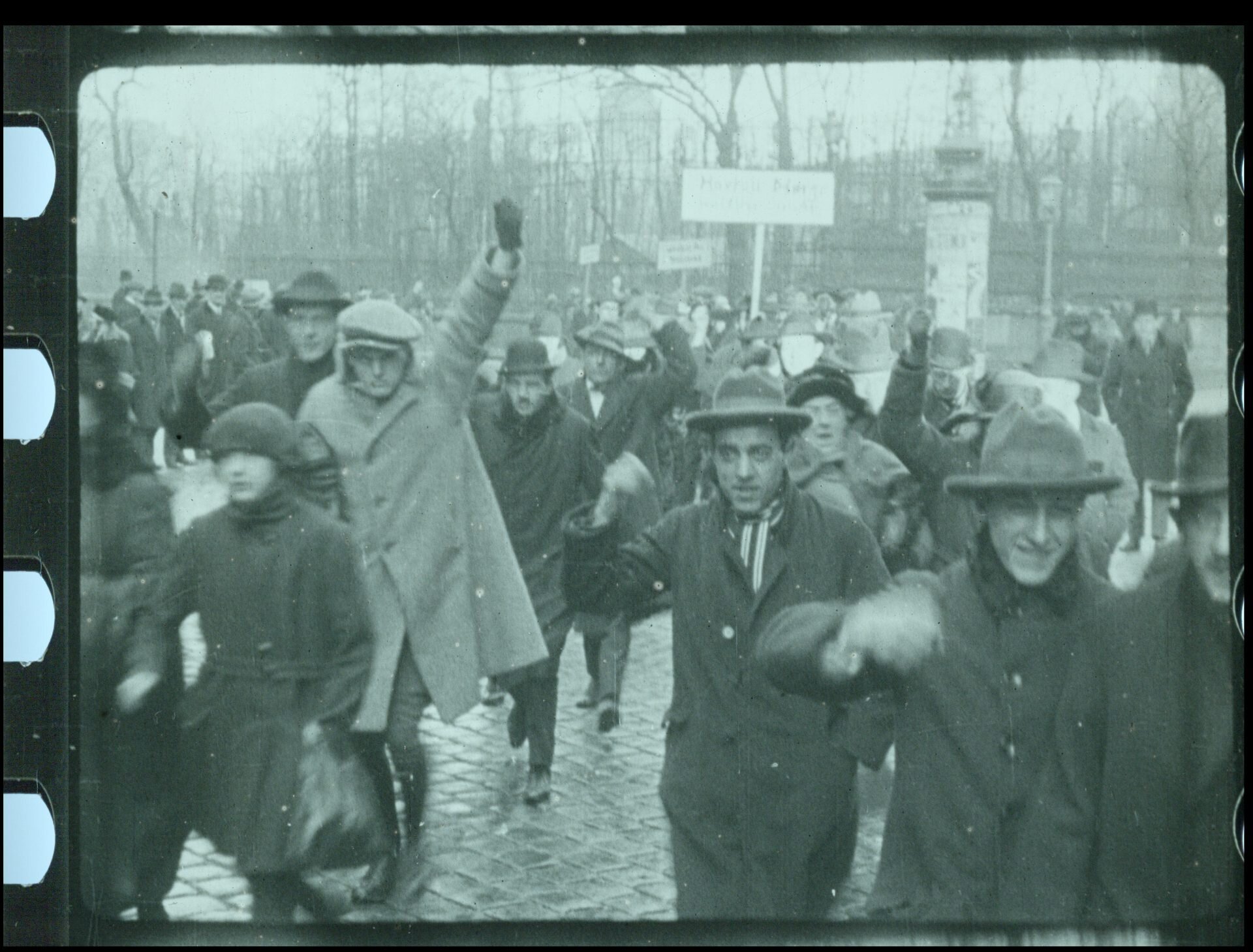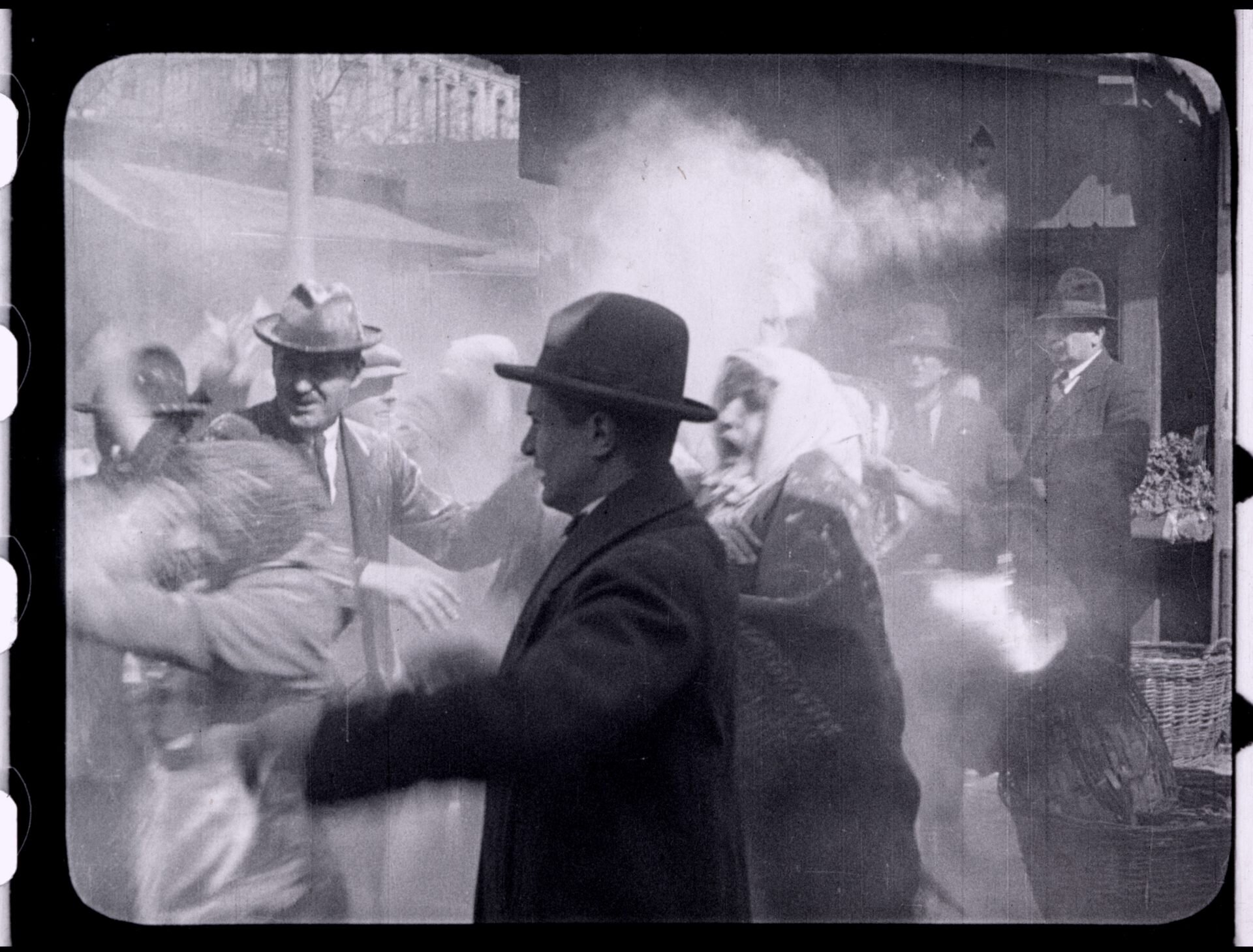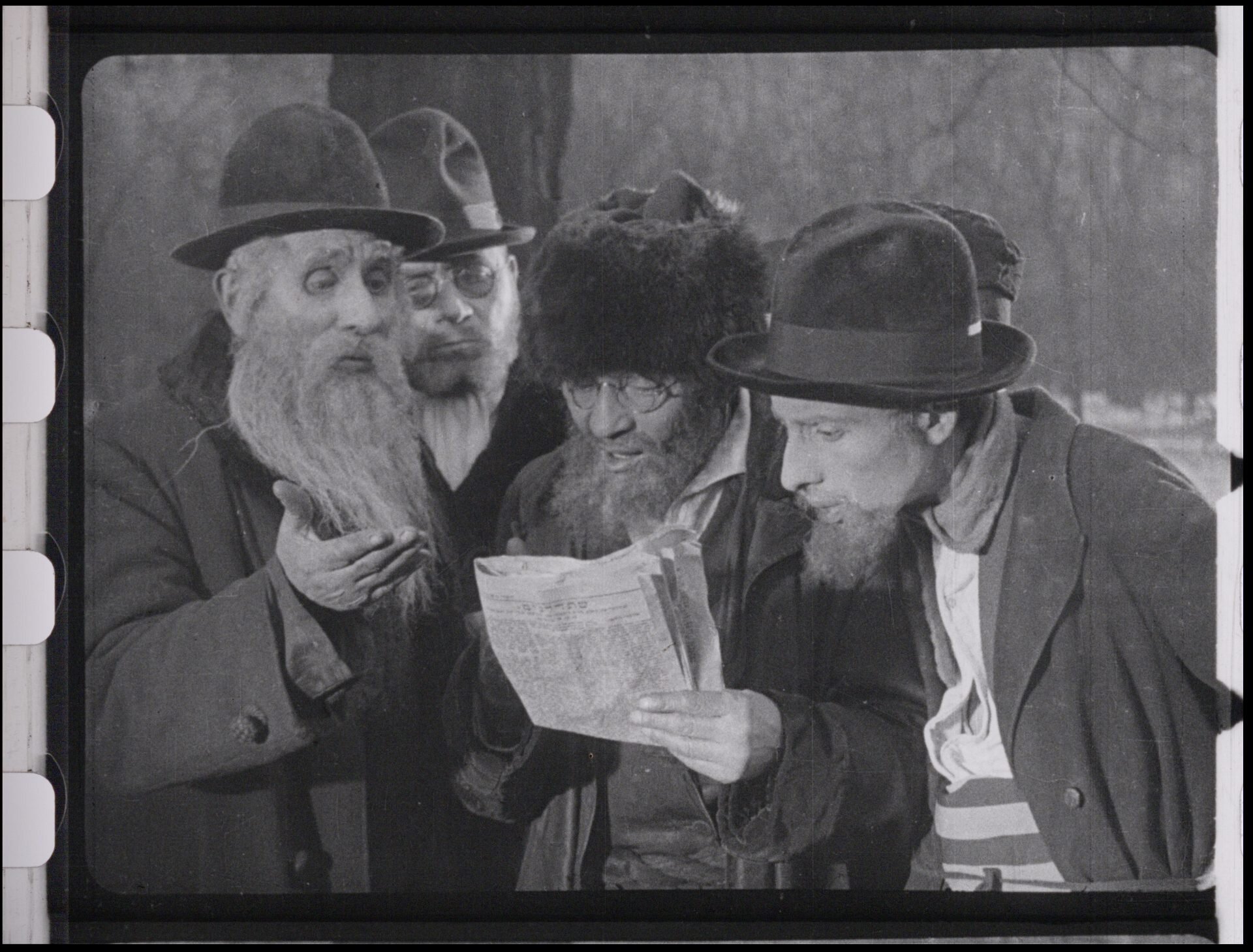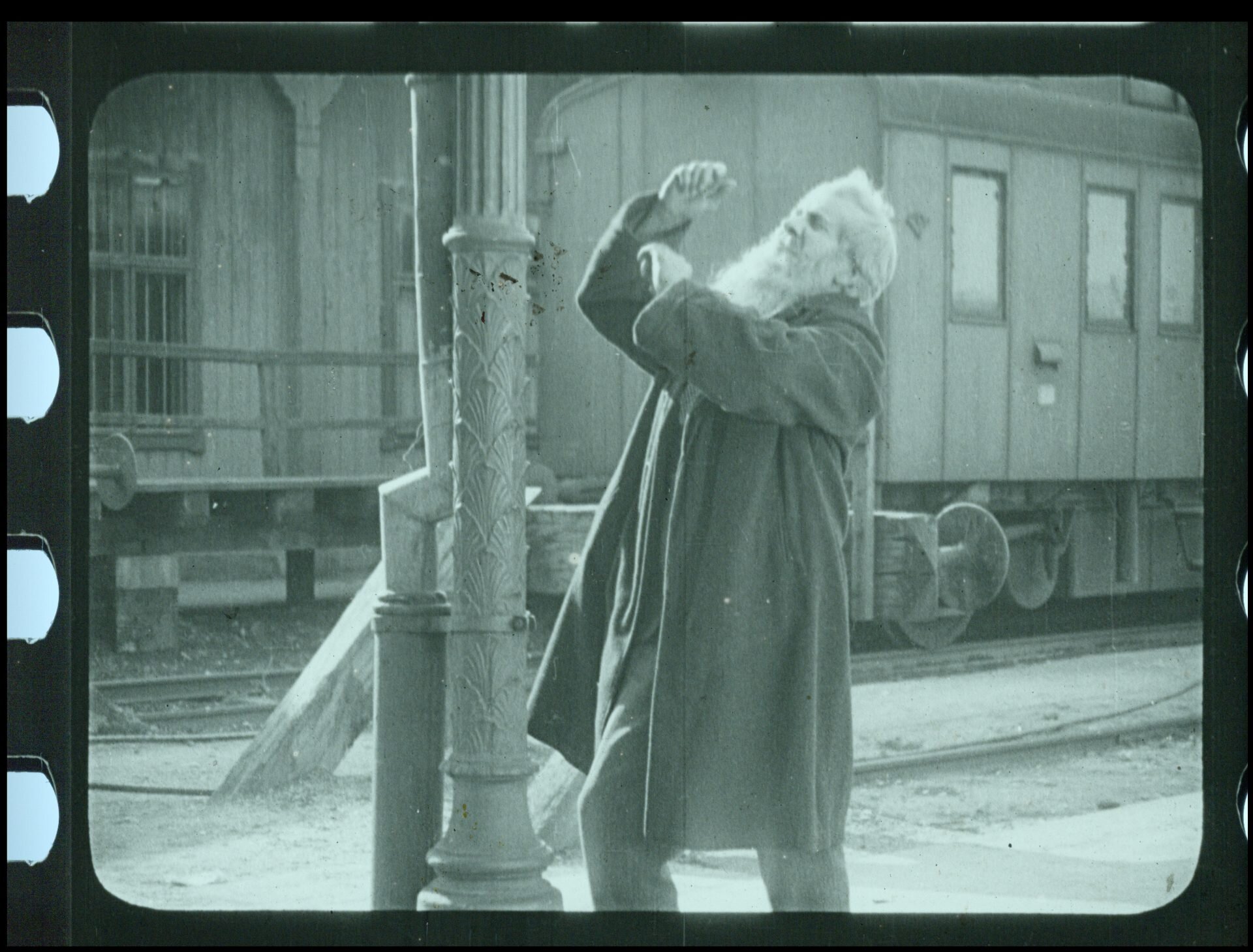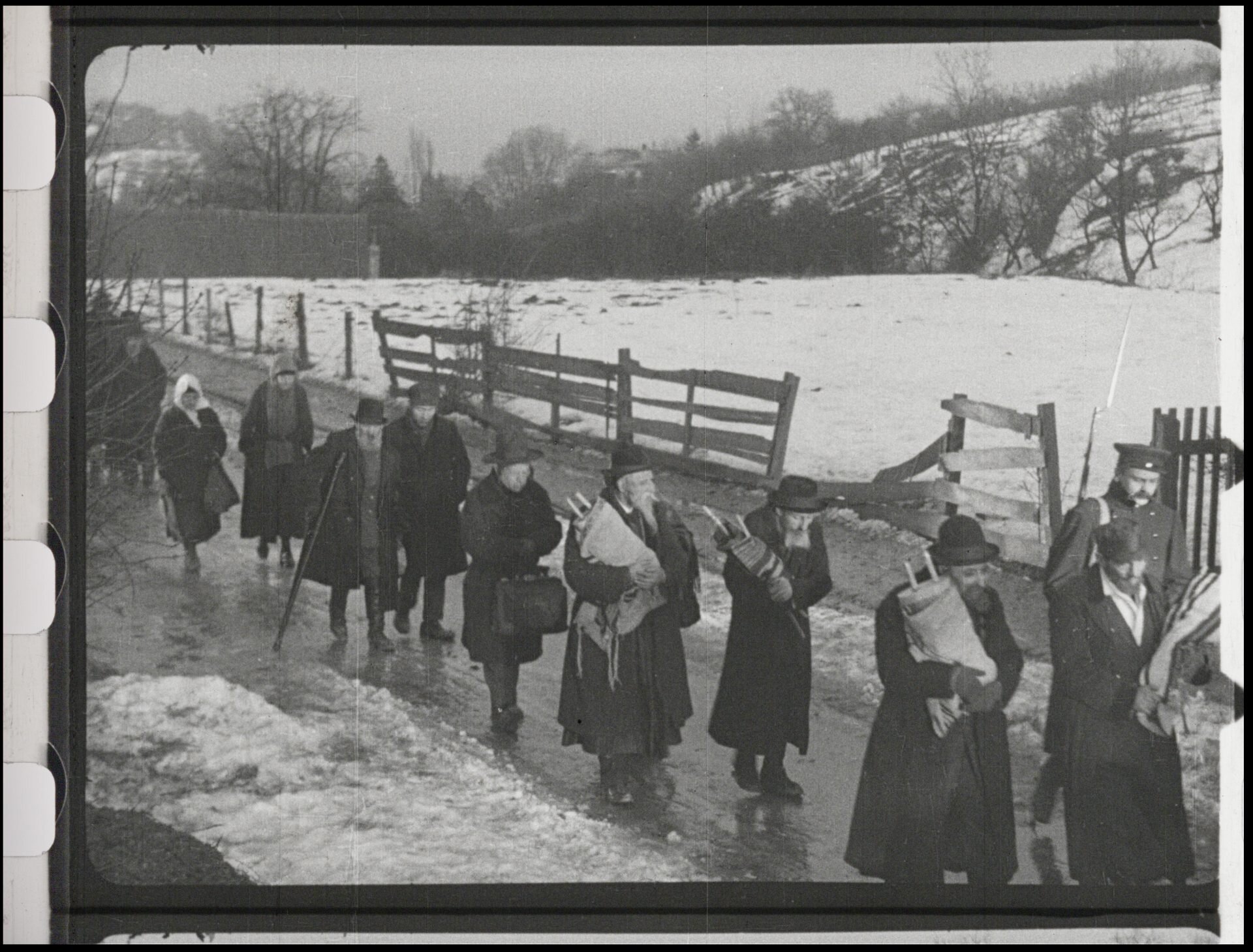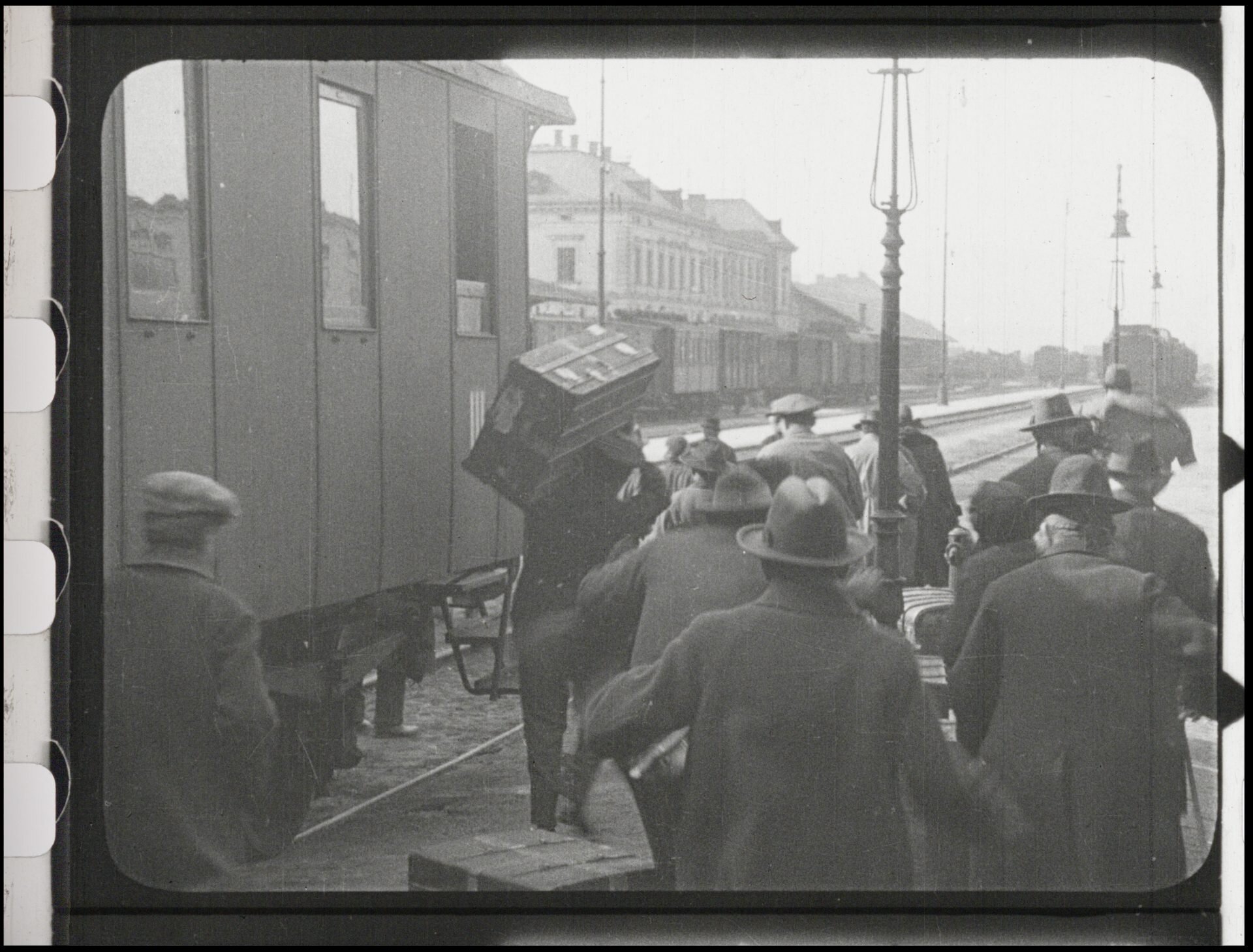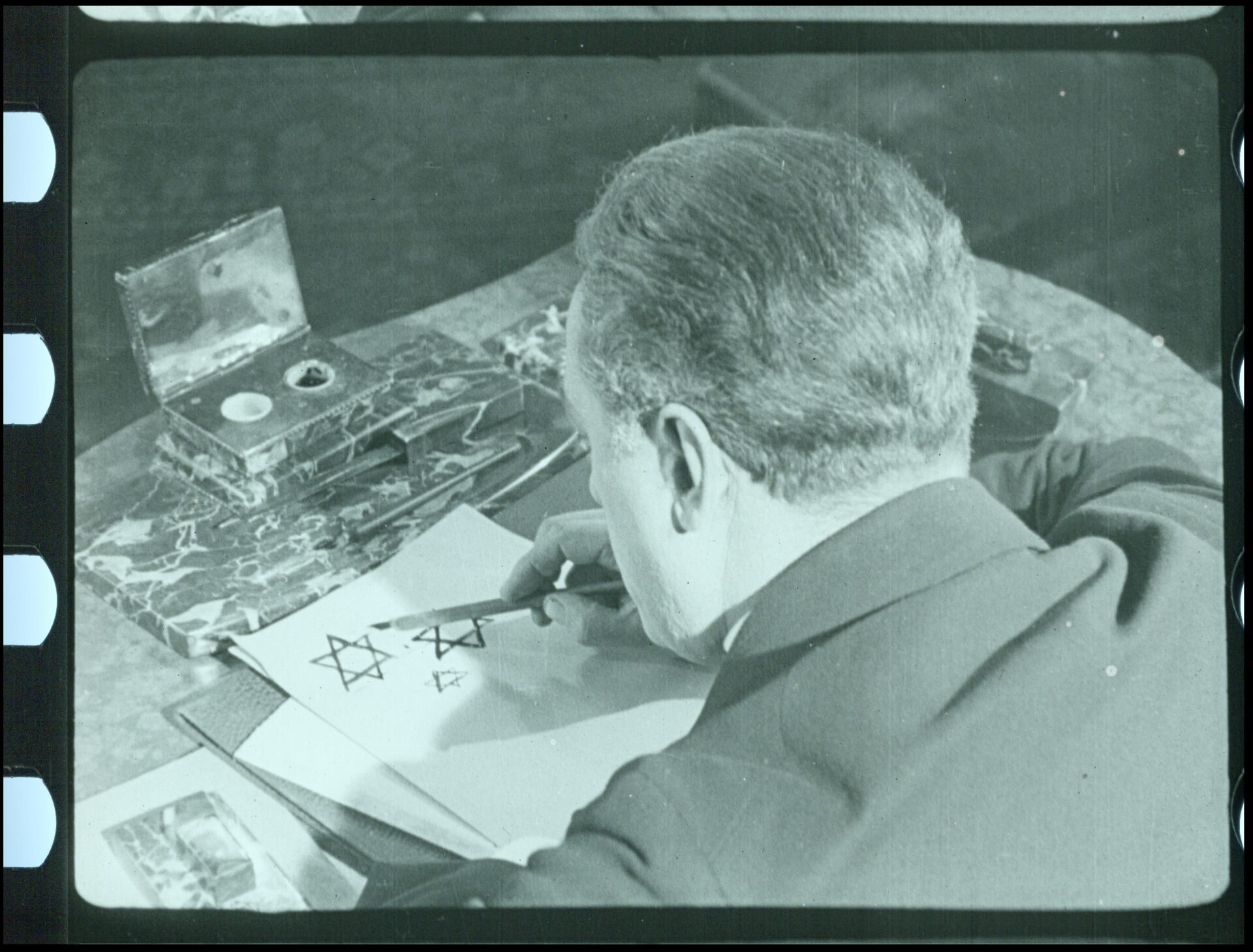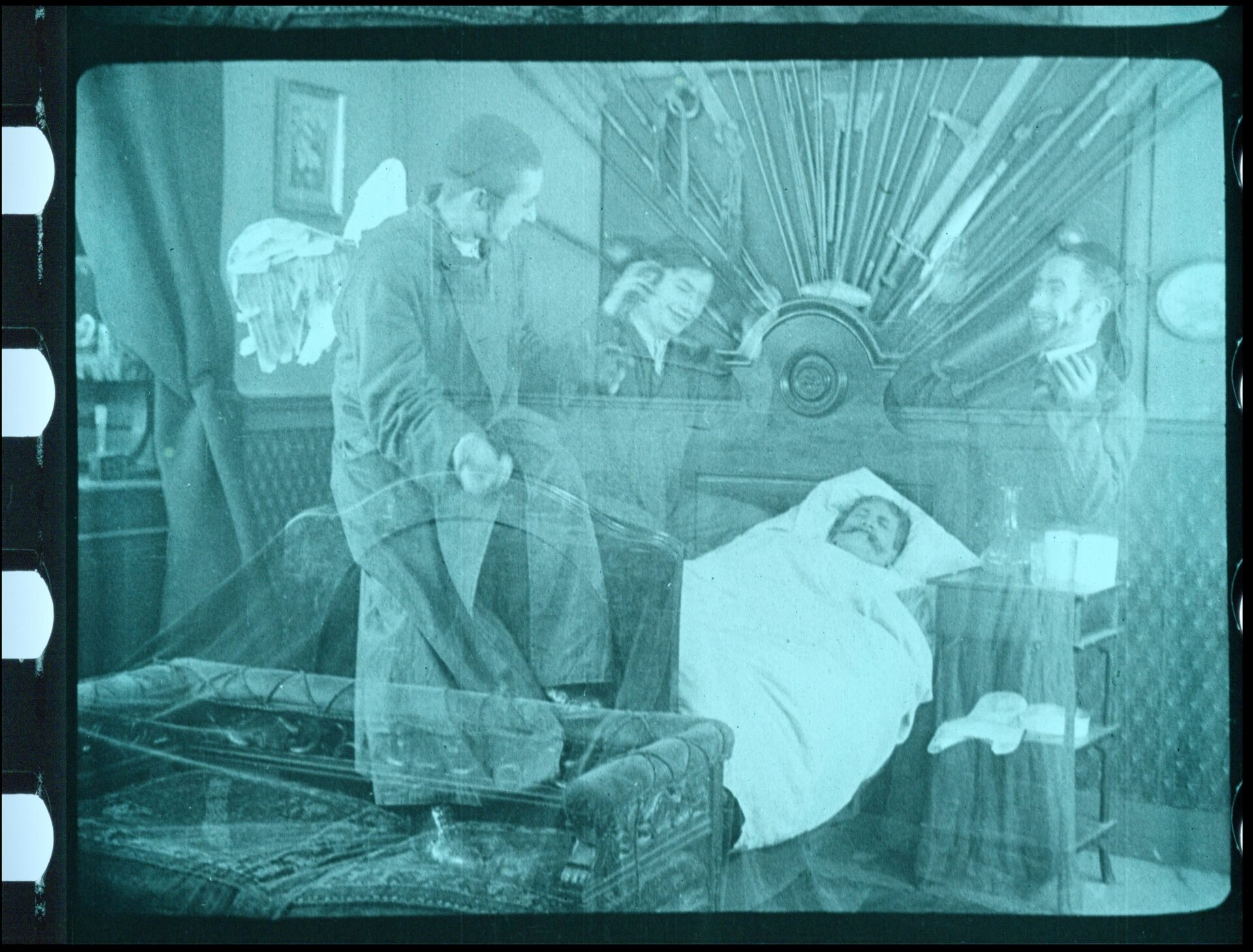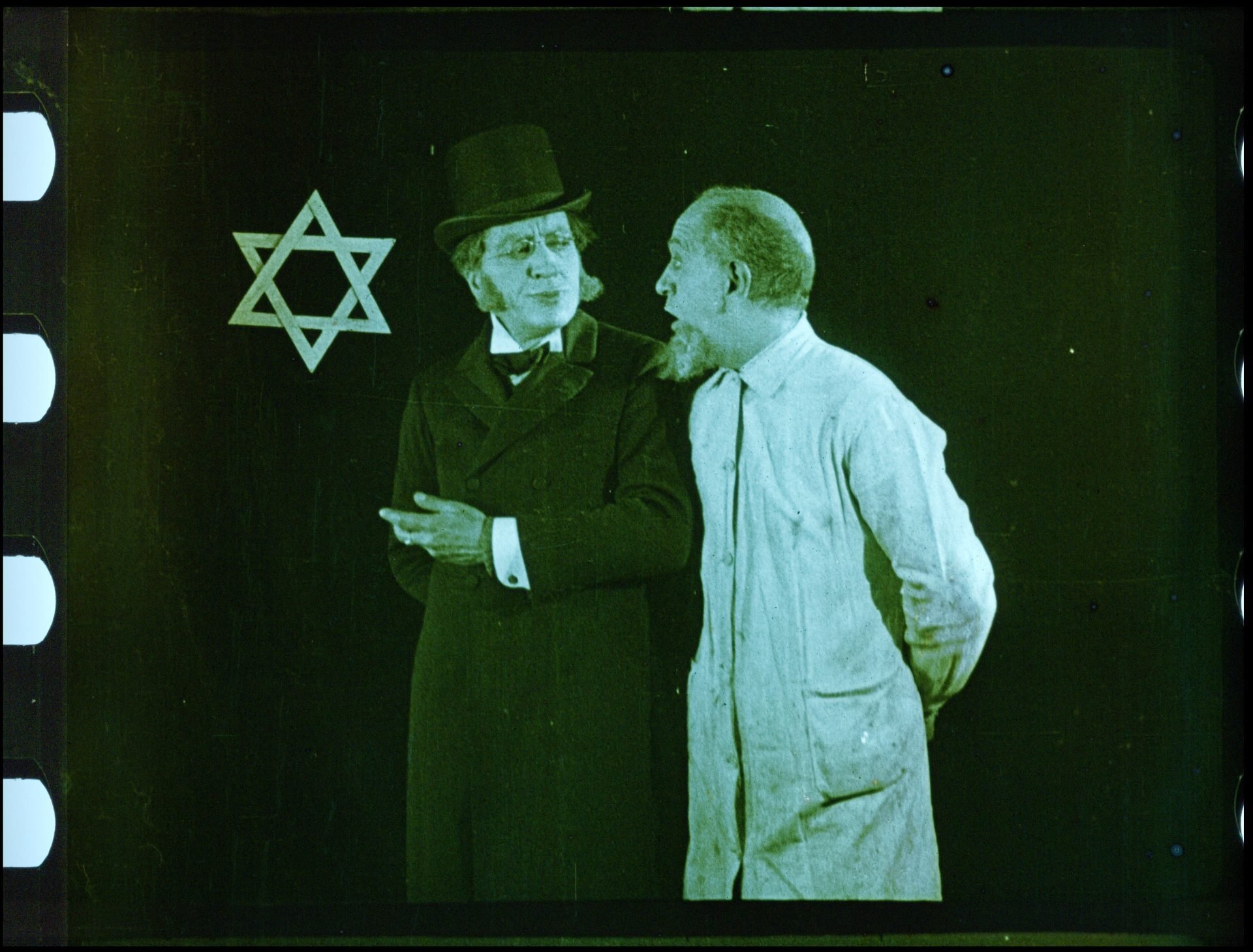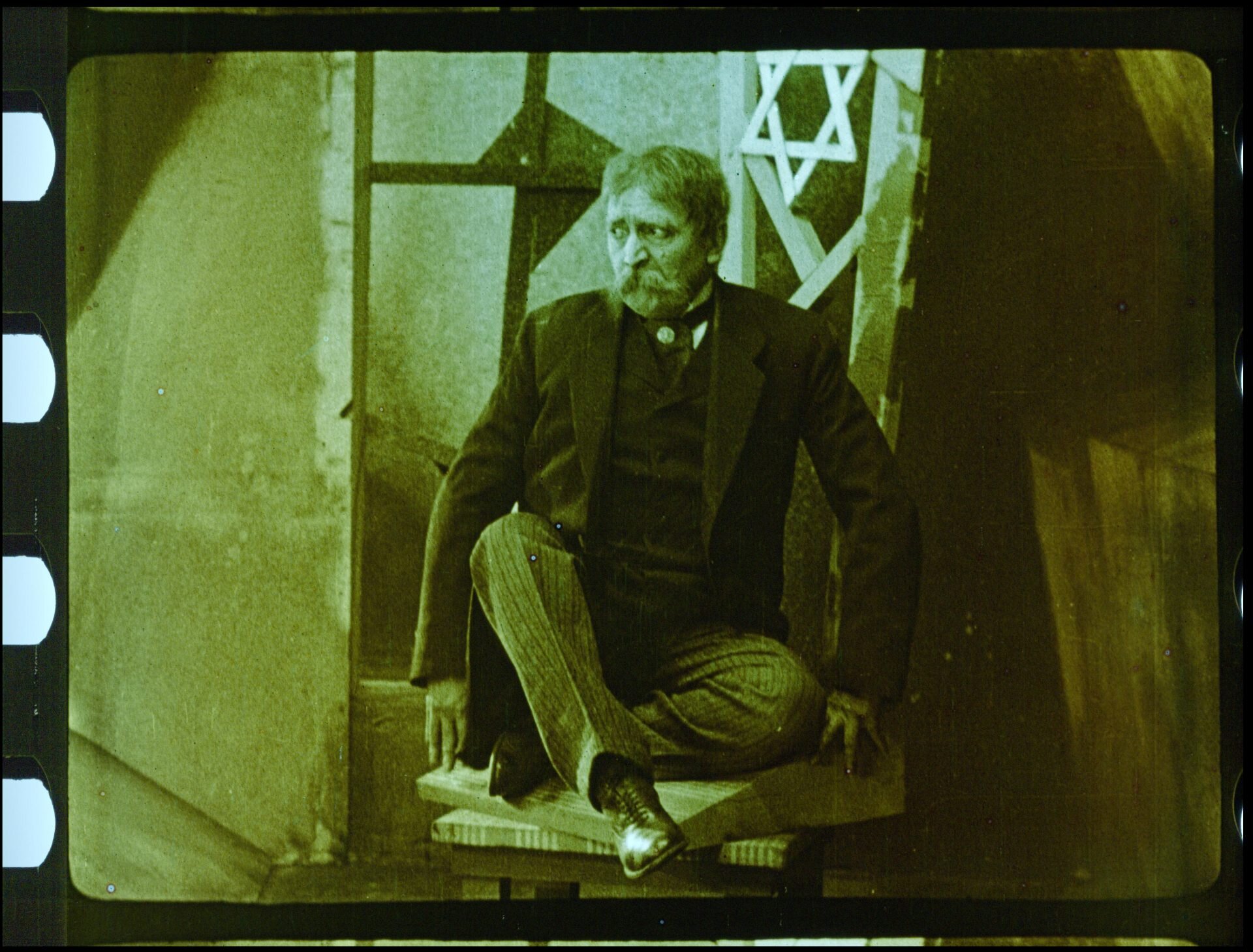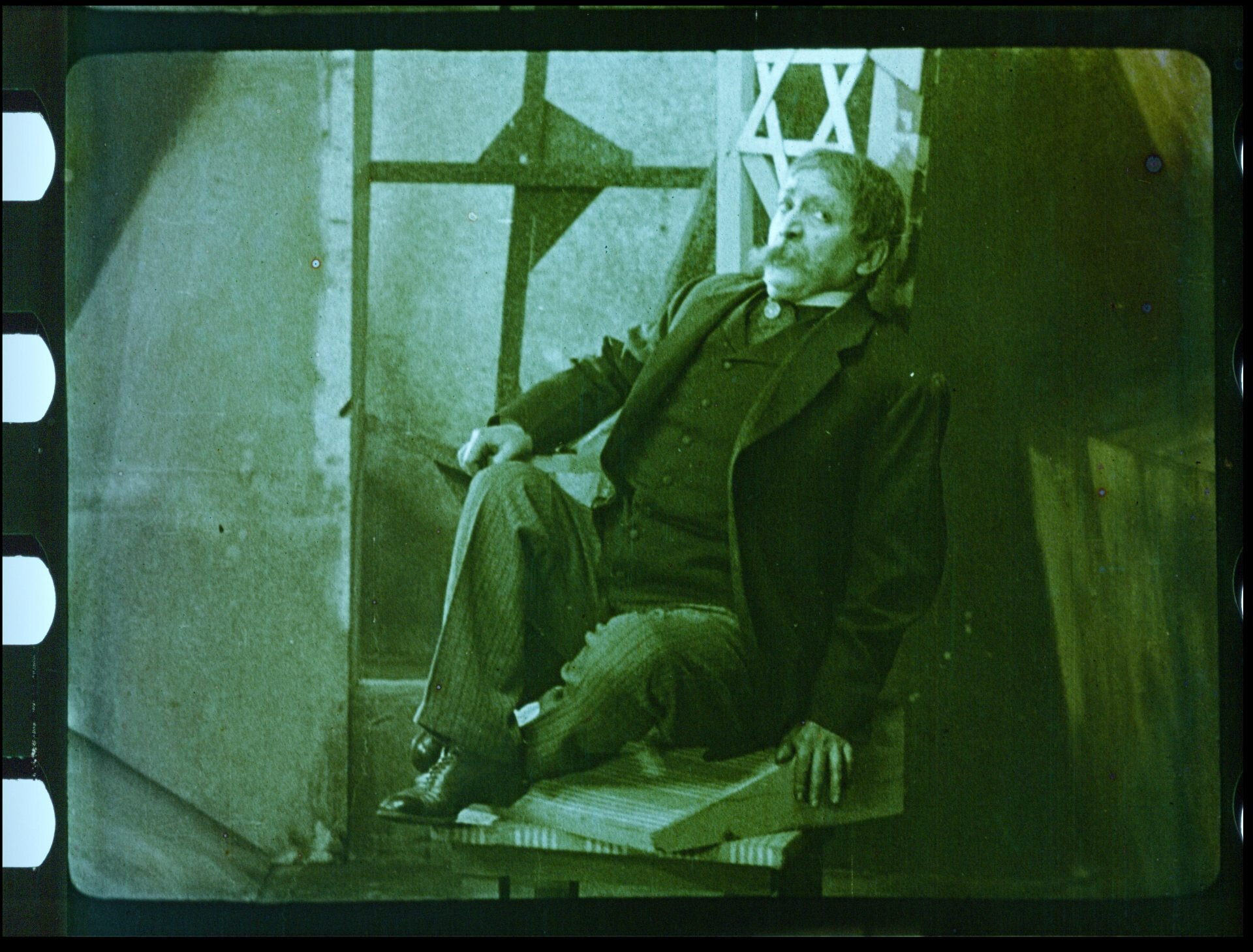The City without Jews was the title of Hugo Bettauer’s 1922 satiric novel in which he described the expulsion of all Jews from Vienna, considered an inconceivable idea at the time. The film adaptation by director Hans Karl Breslauer in 1924, however, was already accompanied by disruptive actions by National Socialists, and Bettauer was shot and killed by a Nazi in 1925. The rise of the National Socialist German Workers’ (Nazi) Party in Austria resulted in the Anschluss (the annexation of Austria into the Third Reich) in 1938. The expulsion and murder of Central European Jews during the Holocaust followed.
Today, the silent film The City without Jews is regarded as one of the most important Austrian productions of the interwar period. Disturbingly prophetic, it shows the cultural and economic impoverishment of a city following the expulsion of its Jewish population. The film was only preserved in fragments and, in terms of its content, downplayed version, until by coincidence a full copy of the original film has been found in France.
The screening of this almost original version of the film was followed by a discussion with Nikolaus Wostry, Managing Director of the Filmarchiv Austria, and the Director of the Washington Jewish Film Festival Ilya Tovbis.
When: Wednesday, November 13, 2019 | 7 pm
Where: Austrian Cultural Forum, 3524 International Court, NW, Washington, DC 20008
Ticket: Free admission, registration obligatory.
Parking on International Court is available after 6:30 pm (for the duration of the event) or on 36th Street; access to the Embassy through the park behind the building.
A registration is not a guarantee of a seat as these are assigned on a first-come first-served basis. Doors close at event start-time.
ABOUT THE FILM
Directed by: Hans Karl Breslauer | Country: Austria | Year: 1924 | Runtime: 91 min | Screenplay: Hans Karl Breslauer, Ida Jenbach | Camera: Hugo Eywo | Cast: Johannes Riemann, Karl Thema, Anny Milety, Eugen Neufeld, Hans Moser, Ferdinand Mayerhofer, Mizzi Griebl, Hans Effenberger, Gisela Werbezirk
The state of Utopia is afflicted with unemployment and galloping inflation; massive crowds protest in the streets. Nationalist German anti-Semites, headed by the two members of parliament, Bernart and Volbert, seize the situation as an opportunity to blame the Jews for the nation’s misery. In parliament, a law is passed to expel them…
The film shows the consequences of the expulsion of the Jewish population: After the desired economic recovery, a cultural and economic decline sets in quickly. Just when the situation seems irresolvable, the Jewish painter Leo Strakosch heads back to Vienna from Paris with forged papers and tries to enable Jews to return to Austria by means of a double cunning.
The film was only preserved in fragments and thus when the original footage, which had been lost for over 90 years, was discovered by coincidence at a flea market in Paris in 2015 and subsequently given to the Filmarchiv Austria, it was considered as one of the most important cinematic finds of recent years.
As the newly discovered material was already showing first signs of decomposition, it was necessary to act quickly in order to rescue this unique cultural historical document on the history of Jewish life and anti-Semitism in Vienna. Thus the Filmarchiv Austria launched the biggest cultural crowdfunding initiative in Austria up to now. More than 700 private »film rescuers« were responsible for a small miracle: for the first time a large film restoration project in Austria was made possible thanks to the participation of a committed public. With this support, the Filmarchiv Austria succeeded in a comprehensive effort to rescue and restore precious film material, which had its premiere in Vienna on March 21, 2018.
The discovered material of the original film sheds new light on The City without Jews. It includes the hitherto lost ending of the film, while the other sequences found reveal an obviously dramaturgically staged parallel narrative of later versions of the film. The political message of the film and the depiction of murderous anti-Semitism in Vienna in the wake of World War I are significantly more sharply articulated in the original film that finally can now be seen by everyone.
“Austria’s National Film Archive has worked over a year to carefully restore “The City Without Jews,” a pre-World War II silent film that served as a warning against the scapegoating of Jews at the time.”
About Nikolaus Wostry
Photo | (c) Nikolaus Wostry
Nikolaus Wostry, Managing Director of the Filmarchiv Austria, studied history and philosophy at the University of Vienna. Today, he is curator of the collections in the Filmarchiv Austria as well as project leader of the Austrian Film Heritage Register and the repatriation activities. His research on Austrian Film History focuses on the silent film period. Therefore, he is specialized in film restoration and also works as a consultant for technical-historical cinematography with an emphasis on early cinema.
About Ilya Tovbis
Photo | (c) Ilya Tovbis
Ilya Tovbis became the Washington Jewish Film Festival Director in 2012, and took on managing the Jewish Music Festival in 2016; he is the founding director of JxJ. He has extensive programming experience in both the Jewish and broader film worlds, having previously worked with the San Francisco Jewish Film Festival, The Picture House, The JCC of NY’s Israel Film Center and the Mill Valley Film Festival.



